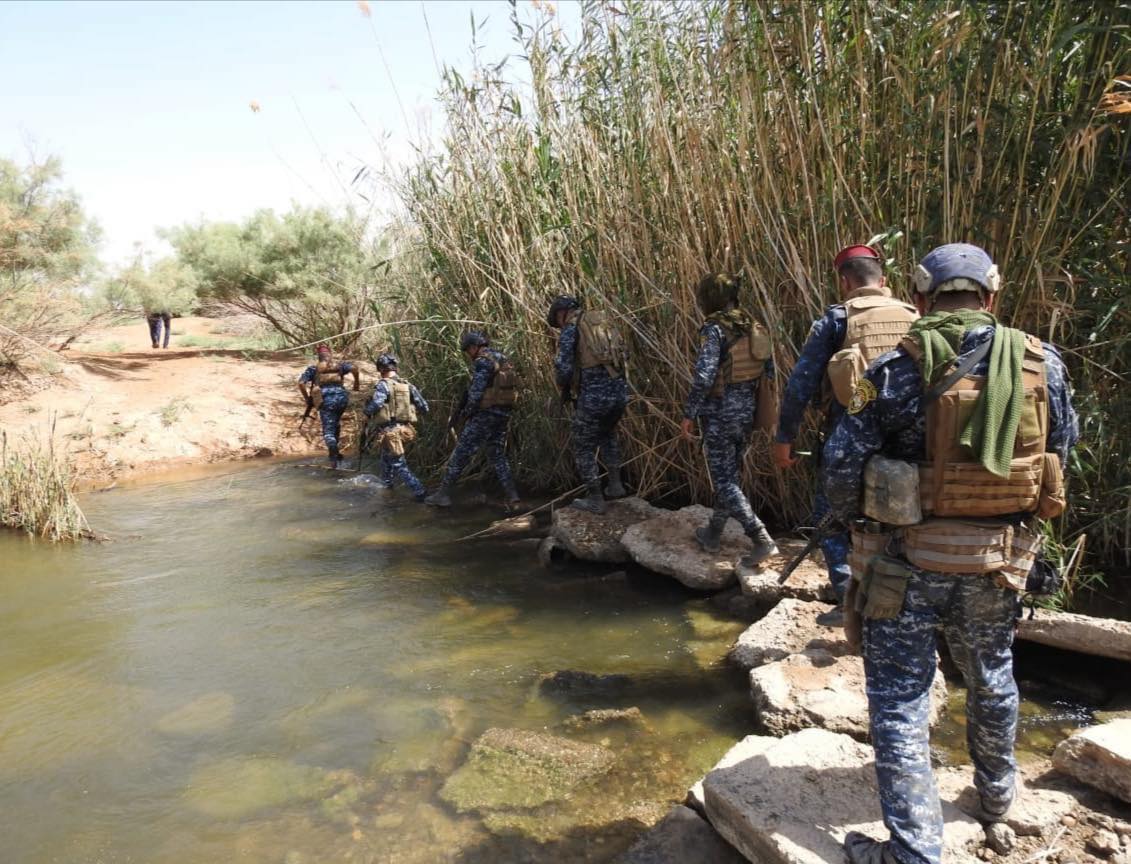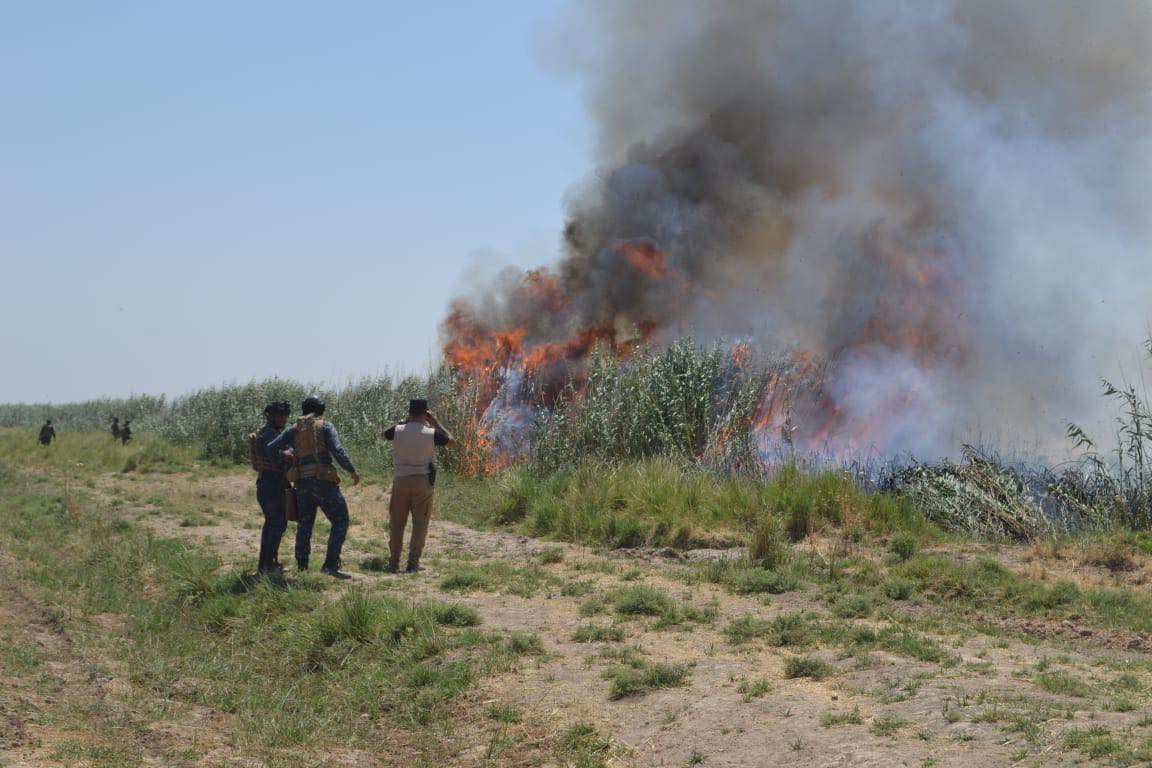The militants of so-called Islamic State in Iraq ISIS have carried out over ten attacks southern Kirkuk in a month.
The Iraqi military and security forces are launching campaigns against the remnants of the extremist group in Daquq and Duz Khurmatu districts south of Kirkuk yet they could not put an end to the escalating threat posed by the tactics the militants use in attacking their bases.
The security and military commanders in the region told KirkukNow more than one factor is in favor of the militants whom are regrouping day after day.
Topography of the region
Tens of hills and valleys such as Wad al-Chai (Tea Valley) have become a safe haven and hideout for the militants in a vast wide area that is not easy to control.
“They are a good escape for Daesh militants since it’s not easily accessible: a vast area of hills and valleys, full of trees, gras and thorns,” a security source told KirkukNow on the condition of anonymity.
The mountainous region is hard for the Iraqi security forces ISF to control so they lead sweep campaigns occasionally to eradicate the hideouts of IS.
The last campaign was carried out on June 16 in Wadi Karja, in Rashad sub-district southwest of Kirkuk, where four militants of IS were killed.
“We heavily depend on air strikes and bombardment since the area is an extensive wide forest like Wadi al-Chai which is one kilometer wide,” the source added.
Tens of wide-scale operations were led in the last two years yet it failed to restore safety and stability in the region.
Footage of operation by ISF against IS militants on June 16 in Wadi Karja, in Rashad sub-district south west of Kirkuk
Uncontrolled villages
A source in the Shiite paramilitary of Popular Mobilization Forces PMF said another reason behind the security gap is some villages in the area of Rashad and Daquq are out of control of the security forces.
“Daesh militants have access to food and other stuff. Besides, the locals are not sharing any information about the militants with ISF,” the source elaborated.
“There are no security forces deployed there for lack of adequate number of forces so the terrorists make use of that gap.”
He added that five brigades of Peshmerga (Kurdish fighters) were deployed in Daquq up to 2017 but now only one brigade of Iraqi police and another of Iraqi army replaced them.
Kirkuk, located 238 kilometers north of Baghdad, is home to 1.2 million Kurds, Arab, Turkmens and other ethnic and religious minorities and the center of the disputed territories where Iraqi security forces have taken control in October 2017 following the declaration of defeat of ISIS by Iraqi government.
Following the military defeat of ISIS, discord over security arrangements, public services, and the lack of a unified administration in the disputed territories, have plagued victims and survivors.
The disputed territories extend from Khanaqin in the east on the border with Iran to the oil rich city of Kirkuk heading to the west of Mosul in Shingal, home to Ezidi ethno-religious minority, on the border with Syria.

Kirkuk, July 2021- Iraqi federal police in Wadi al-Chai south of Kirkuk. Iraqi federal police media
10 attacks in a month
IN only month, IS militants managed to carry out 10 attacks against ISF and the civilians by direct confrontation, IED and roadside bombs, leaving 12 soldiers and civilians killed.
A security official updated KirkukNow about the security developments in the region. On June 24th, a roadside bomb targeted a vehicle of Iraqi army south of Daquq and three soldiers were injured.
The same day yet in a separate attack, five Iraqi federal policemen were killed and two officers wounded in Daquq in confrontation with IS militants.
Two civilians were injured in the village of Hassan Shalal of Daquq by Daesh.
On July 5th, a villager was kidnapped in a village of al-Rashad. An Iraqi soldier was killed on June 9th in Rashad, another was killed on June 13 in Rashad and another killed in Riyadh on July 15th.
On July 16th, four Iraqi soldiers were killed in an offensive by Daesh.
The joint operations’ command of Kirkuk called on the villagers to hold guns side by side of ISF to stand in the face of IS militants in order to curb its threats.
The joint operations’ command of Kirkuk is an umbrella for the security forces running the security of Kirkuk province which embraces Iraqi army, local and federal police, Brigade 61 of Special Forces along with Shiite paramilitary of Popular Mobilization Forces PMF.





